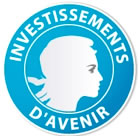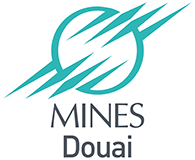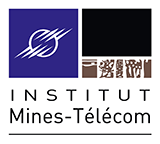The Pharo MOOC
WebPortal
About this course
If you are either a beginner or an expert in object-oriented programming, this MOOC will change the way you program with objects: come and learn or rediscover object-oriented programming with Pharo! more…
Pharo is a pure object-oriented programming language in the tradition of Smalltalk. It offers a unique developing experience in constant interaction with live objects. Pharo is elegant, fun to use and very powerful. It is very easy to learn and enables to understand advanced concept in a natural way. When programming in Pharo, you are immersed in a world of live objects. You have immediate feedback at any moment of your development on objects representing web applications, code itself, graphics, network…
Pharo is also a very powerful open-source environment used by companies to develop web applications.
In this MOOC, we will present more specifically Pharo’s Web stack which changes the way you build web applications.
In addition we will present fundamental programming concepts and how Pharo uses them. We will present some coding idioms and Design Patterns to better design object-oriented applications. Such concepts can be applied to any object-oriented programming language.
This MOOC is intended for people with a programming experience but everyone motivated could follow the course thanks to the numerous resources proposed. This MOOC will also have an interest for computer programming teachers: Pharo is a good teaching tool for object-oriented programming and the course will discuss object-oriented design principles (e.g. polymorphism, message sending, self/super, design patterns).
Throughout this MOOC you will :
- learn how to program in Pharo,
- be immersed in a live environment and live a new programming experience,
- develop a web application to apply the different aspects of Pharo presented in the course.
This MOOC will also provide a new vision of the fundamental principles of object-oriented programming, i.e. polymorphism and late binding.
This course lasts 7 weeks.
Each week is composed of several sequences containing a video lecture, quizzes and other videos proposing application exercises and programming demonstrations.
This course is proposed in french and in english. Videos are in french with french and english subtitles. Pdf course documents (in english only) will be available. All other materials (quizzes, explanation texts…) will be offered in both languages.
Download Pharo
To get a version of Pharo ready for the MOOC, please follow these steps:
- Download and install the
Pharo Virtual Machine (VM)
Only for linux users (tested on Unbutu 16.04):sudo dpkg --add-architecture i386 sudo apt-get update sudo apt-get install libx11-6:i386 libgl1-mesa-glx:i386 libfontconfig1:i386 libssl1.0.0:i386 curl http://get.pharo.org/vm50 | bash # you now have a pharo-ui script in the current folder to launch pharo images - Download and unzip the PharoWeb which is a Pharo 5.0 image specifically prepared for the MOOC
- Run the PharoWeb image with the Pharo virtual machine:
- For Windows: drag and drop the image on the virtual machine;
- For OS X: drag and drop the image (
*.imagefile) on the virtual machine (Pharo5.0.app); - For Linux and other Unixes: pass the image as parameter to the virtual machine (
./pharo-ui PharoWeb.image).
Week 1: Welcome on Board and Syntax Discovery
Download the slides, videos and exercises.
- Lecture Objectives of this MOOC
- Lecture Pharo: an Immersive Object-Oriented System
- Lecture Pharo Vision
- Lecture Pharo Object Model in a Nutshell
- Lecture Pharo Syntax in a Nutshell
- Lecture Class and Method Definitions
- Live Selecting and executing expressions
- Live Learn Pharo with Prof Stef
- Live Syntax Highlighting gives Feedback
- Live Learn Keyboard Shortcuts
- Redo Coding a Counter
- Exercise Expressions and Messages
- Exercise TinyBlog: Presentation and Model
- Challenge Challenge 0 - Retrieve the Pharo logo via Zinc and open it in a Morph
Week 2: Pharo Syntax, Blocks and Inspector
Download the slides, videos and exercises.
- Lecture Understanding Messages
- Lecture Messages for Java programmer
- Lecture Messages: Composition and Precedence
- Lecture Understanding Messages: Sequence and Cascade
- Live Finding Methods with Finder
- Live GTInspector 1: Inspect and Interact with Objects
- Lecture Introduction to Blocks
- Lecture Loops
- Lecture Booleans and Conditions
- Lecture Parenthesis vs Square Brackets
- Lecture Yourself
- Lecture The Essence of Dispatch through an Exercise
- Live Nautilus 1: First Meet with the Code Browser
- Live Nautilus 2: Packages, Tags and Groups
- Live Nautilus 3: Inheritance view
- Redo Coding a Counter in the Debugger
- Exercise Solution: Expressions and Messages
- Exercise Expression Results
- Exercise TinyBlog: Extending and Testing the Model
- Challenge Solution: Challenge 0
- Challenge Challenge 1
Week 3: Design, Class Methods and Collections
Download the slides, videos and exercises.
- Lecture Essence of Dispatch: Taking Pharo Booleans as Example
- Lecture Essence of Dispatch
- Lecture Variables
- Lecture A Simple HTTP Application: a Pretext to Revisit Pharo Syntax
- Live Nautilus 4: How to Become a Super Pharo Developer: Understanding Sender and Implementors
- Live Nautilus 5: Navigating Fast Inside Classes
- Lecture Class Methods
- Lecture An Overview of Essential Collections
- Live Spotter 1: Find and Browse a Class
- Live Spotter 2: Filter Results by Category
- Lecture Iterators
- Lecture Stream Overview
- Lecture Understanding Return
- Redo Coding a Little Domain Specific Language
- Exercise Solution: Expression Results
- Exercise Rewriting Expressions
- Exercise TinyBlog: A Simple Teapot Web Interface
- Challenge Solution: Challenge 1
- Challenge Challenge 2
Week 4: Inheritance & Lookup and Web Development
Download the slides, videos and exercises.
- Lecture Inheritance Basics
- Lecture Inheritance & Lookup: Lookup
- Lecture Inheritance & Lookup: Super
- Lecture Inheritance & Lookup: DoesNotUnderstand:
- Lecture Inheritance & Lookup: Lookup in Metaclasses
- Lecture Class Methods at Work
- Lecture Overview of Pharo Web Stack
- Lecture Seaside: an Innovative Web Application Framework
- Lecture Seaside: Rendering Components
- Lecture Seaside: a Glance at MetaData and REST
- Lecture Voyage: NoSql Object Database
- Live How to load code from repository
- Live How to load projects
- Live Nautilus 6: An overview of Refactorings
- Live Nautilus 7: Using the Quality Assistant and Code Critic
- Exercise Solution: Rewriting Expressions
- Exercise TinyBlog: Data Persitency using Voyage and Mongo
- Exercise TinyBlog: Building a Web Interface with Seaside
- Exercise Building a Simple Contact Book Application
- Challenge Solution: Challenge 2
- Challenge Challenge 3
Week 5: Exception, Debugging and Reflection
Download the slides, videos and exercises.
- Lecture Seaside: Composing Components
- Lecture Really Understanding Class Methods
- Lecture Common Errors
- Lecture Powerful Exceptions: an Overview
- Lecture Debugging in Pharo
- Lecture SUnit: Unit Tests in Pharo
- Lecture Files in Pharo
- Lecture Reflection: Basic Introspection
- Lecture Benchmarking in Pharo
- Live Spotter 3: Scoping and Reducing Search
- Live Spotter 6: Search, Navigate and Preview Files
- Live Learning the Debugger
- Live How to find a bug?
- Live GTInspector 2: Inspect Files and Directories
- Exercise TinyBlog: Building an Admin Seaside Web Interface with Magritte
- Exercise TinyChat
- Challenge Solution: Challenge 3
- Challenge Challenge 4
Week 6: Rethink Lookup and Advanced Object-Oriented Design
Download the slides, videos and exercises.
- Lecture Did You Really Understand Super?
- Lecture Understanding the Implementation of ifTrue:ifFalse:
- Lecture Dice new vs. self class new
- Lecture Message sends are plans for reuse
- Lecture Hooks and Templates
- Lecture Runtime Architecture
- Lecture Characters, Strings and Symbols
- Lecture Dynamic Vs. Literal Arrays
- Live Understanding Images and Changes Files
- Live Using the Pharo Launcher to manage your Pharo images
- Live Diffing and Merging in Pharo
- Live GTInspector 4: Build Custom Tab Views for your Objects
- Exercise TinyBlog: Deployment (PharoWeb image for deployment which uses Pharo 4)
- Challenge Solution: Challenge 4
- Challenge Challenge 5
Week 7: More on Object-Oriented Design and Testing
Download the slides, videos and exercises.
- Lecture Advanced Points on Classes
- Lecture Variable Size Objects
- Lecture Understanding Metaclasses
- Lecture Reflective Operations for Live Programming
- Lecture DoesNotUnderstand: a Precious Hook
- Lecture Reflection: Stack as an Object
- Lecture Avoid Null Checks
- Lecture A Journey in Pharo: A Bright Future
- Live Spotter 4: The Preview pane
- Live Spotter 5: Search in Playground History
- Live GTInspector 3: Understand Pharo Internals by Inspection
- Challenge Solution: Challenge 5
Resources
You can find free and online ressources in the Documentation page. We recommend the Updated Pharo by Example book, the Pharo cheat-sheet, …
About

Damien Cassou
Damien Cassou received his PhD degree in Computer Science from the University of Bordeaux, France. He is working as associate professor (maître de conférences) at the University of Lille, France, and is a member of the RMoD research group (Inria, CRIStAL). Damien is working on dynamic programming languages (most notably around traits and modules) and software engineering (mainly tools for developers). Damien has co-organized many events (including ECOOP’14 and ESUG many times) and co-wrote several books. Because he loves programming, Damien is also an active member of the Smalltalk and Emacs-Lisp communities. Finally, he maintains many packages for NixOS.

Stéphane Ducasse
Stéphane Ducasse is directeur de recherche at Inria. He leads the RMoD team. He is expert in two domains: object-oriented language design and reengineering. His works on traits have been introduced in AmbientTalk, Slate, Pharo, Perl-6, PHP 5.4 and Squeak. They have also influencedJavaScript, Scala and Fortress. Stéphane is also expert on software quality, program understanding, program visualisations, reengineering and metamodeling. He is one of the developers of Pharo. He is also one of the developers of Moose, an open-source software analysis platform. He created Synectique a company building dedicated tools for advanced software analysis. Stéphane wrote several books on programming learning and other topics such as web programming.

Luc Fabresse
Luc Fabresse received his PhD in computer science in 2007 from the University of Montpellier 2, France. He is currently an associate professor in the CAR research theme at Mines Douai, Mines-Telecom Institute. Luc is the co-author of several research papers advocating the use of dynamic and reflective languages such as Pharo to support live programming of mobile and autonomous robots in an efficient way. Luc's long-term vision is to be able to use Jedi mind trick on mobile robots ;-) Meanwhile, he concretizes all his ideas (models and tools) in the PhaROS plateform (a Pharo client for the Robotics Operating System) to develop, debug, test, deploy, execute and benchmark robotics applications. Each year, Luc gives many computer science lectures and co-organizes events (technical days, conferences, ...). He also promotes Smalltalk (ESUG board member) and participates to its open-source implementation Pharo.







